In times of emotional difficulty, one question may frequently echo in our minds: “Am I depressed?” Recognizing the signs and symptoms of depression is the first step towards understanding one’s mental health status and seeking appropriate care. This blog post aims to clarify the common markers of depression, hoping to offer understanding and direction for those questioning their emotional well-being.
Table of Contents
- Understanding Depression
- Common Signs of Depression
- When to Seek Help
- Treatment Options
- How Vanguard Behavioral Health Can Help
Understanding Depression
Depression extends far beyond the realm of temporary sadness. It is a pervasive condition affecting one’s feelings, thoughts, and daily functions. Recognizing its true impact requires shedding light on the spectrum of symptoms that accompany this mental health concern. Indeed, recent statistics underscore its prevalence: “Nearly three in ten adults (29%) have been diagnosed with depression at some point in their lives and about 18% are currently experiencing depression, according to a 2023 national survey. Women are more likely than men and younger adults are more likely than older adults to experience depression. While depression can occur at any time and at any age, on average it can first appear during one’s late teens to mid-20s” (American Psychiatric Association, 2023).
Common Signs of Depression
Recognizing the common signs of depression is crucial for understanding and addressing this pervasive mood disorder. Depression impacts how individuals feel, think, and handle daily activities, potentially causing a significant toll on their overall well-being. The Mayo Clinic (n.d.) emphasizes the recurrent nature of depression, noting, “Although depression may occur only once during your life, people typically have multiple episodes. During these episodes, symptoms occur most of the day, nearly every day and may include:” This statement highlights the importance of awareness and intervention, as the frequency and intensity of these symptoms can severely affect one’s quality of life.

Emotional Symptoms
- Persistent sadness or empty mood
- Feelings of hopelessness, guilt, or worthlessness
- Loss of interest in hobbies and activities
- Irritability and frustration, even over small matters
Physical Symptoms
- Changes in appetite or weight
- Sleep disturbances, including insomnia or oversleeping
- Fatigue and lack of energy
- Physical aches without a clear cause
Cognitive Symptoms
- Difficulty concentrating, remembering, or making decisions
- Recurrent thoughts of death or suicide
When to Seek Help
Acknowledging the need for assistance is a courageous step. If you’re asking yourself, “Am I depressed?” because you recognize several symptoms mentioned, it’s crucial to reach out for professional help. Depression is highly treatable, and early intervention can improve outcomes significantly.
Treatment Options
Depression treatment encompasses a variety of options, including:
- Psychotherapy: Talk therapies like cognitive-behavioral therapy (CBT) can be incredibly effective.
- Medication: Antidepressants may help adjust the brain’s chemical balance to improve mood.
- Lifestyle Changes: Exercise, diet, and sleep habits play significant roles in managing depression.
- Support Groups: Sharing experiences with others facing similar challenges can offer comfort and insight.
How Vanguard Behavioral Health Can Help
At Vanguard Behavioral Health, we understand the profound impact depression can have on your life. Our compassionate team is here to offer personalized support, from diagnosis to treatment, ensuring you don’t have to navigate this path alone. Whether you’re taking the first steps to understand “Am I depressed?” or seeking effective treatment options, we’re here to help.
Conclusion
If you find yourself wondering, “Am I depressed?”, recognizing the signs and symptoms is the beginning of your journey toward healing. Remember, depression is not a sign of weakness; it’s a health condition that deserves professional care. At Vanguard Behavioral Health, we’re committed to providing the support and treatment necessary to help you regain balance and achieve mental well-being. Reach out to us today; let’s take the first step together toward a healthier tomorrow.
Ready to explore how we can help you? Reach out to us for more information on treating depression and reclaiming your life.
Reference:
American Psychiatric Association. (2023). What is depression? Retrieved from https://www.psychiatry.org/patients-families/depression/what-is-depressionMayo Clinic. (n.d.). Depression (major depressive disorder). Symptoms and causes. https://www.mayoclinic.org/diseases-conditions/depression/symptoms-causes/syc-20356007







